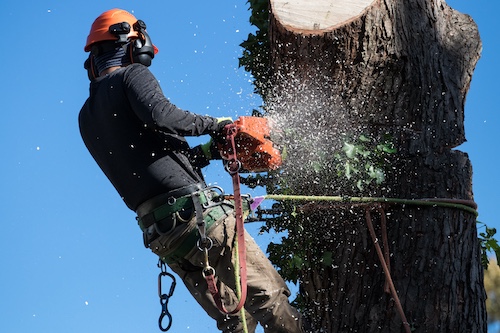Staying Safe in Charlotte’s Most Dangerous Jobs
High-risk jobs keep Charlotte’s economy moving, but they also come with serious dangers. Construction workers, truck drivers, electrical line installers, and others in physically demanding roles face constant exposure to heavy machinery, hazardous materials, and extreme conditions. These jobs have some of the highest injury and fatality rates in the state. Understanding how to prevent workplace injuries is critical for both workers and employers.
In this blog, you’ll learn how to reduce injuries in high-risk jobs, understand safety laws in North Carolina, and see why working with an experienced Charlotte workers’ compensation lawyer can help protect your rights if you’re injured on the job.
Understanding the Dangers of High-Risk Jobs in Charlotte
High-risk jobs in Charlotte expose workers to serious injuries, illnesses, and even fatalities. These roles involve dangerous equipment, hazardous materials, and physically demanding tasks across multiple industries.
Common High-Risk Occupations in Charlotte
Many jobs in Charlotte involve significant risks. Construction workers operate heavy equipment and work at height. Electrical power line installers face high-voltage lines and unstable structures.
Logging workers and steel workers handle sharp tools and heavy materials. Truck drivers manage long hours and road dangers. Agricultural workers apply pesticides, use heavy machinery, and work with animals. Police officers and air traffic controllers face mental stress and safety risks daily.
Workplace Hazards and Exposure Risks
Each high-risk job presents unique hazards. Construction sites often involve digging trenches, moving building materials, and working with structural iron. These conditions lead to falls, crush injuries, or machinery-related accidents.
Agricultural workers face pesticide exposure, heat stress, and animal-related injuries. Truck drivers risk accidents due to fatigue and long hours. Electrical workers face electrocution from live wires. Exposure to industrial waste, hazardous materials, and extreme temperatures is common.
Leading Injury Causes in Dangerous Jobs
Labor statistics show that transportation incidents, falls, and equipment contact are the leading causes of injuries in high-risk jobs. Accidents often happen when operating aircraft, handling power tools, or using other machines.
Poor training, unsafe equipment, and weak safety standards make injuries more likely. These factors contribute to a high fatality rate in dangerous jobs.
Physical and Mental Demands of the Work
High-risk occupations are physically demanding. Workers lift heavy items, use power tools, or work in extreme temperatures. These conditions cause strains, sprains, and long-term pain.
The mental load is also high. Pilots, police officers, and others make fast decisions under pressure. Long shifts and dangerous conditions take a toll on mental health and focus.
Legal Framework for Workplace Safety in North Carolina
High-risk jobs in North Carolina are regulated by specific safety laws meant to reduce injuries, illnesses, and fatalities in dangerous occupations.
Federal and State Safety Standards
Employers in Charlotte must comply with the Occupational Safety and Health Act (OSHA). These federal rules set minimum safety standards across many industries. OSHA covers construction workers, truck drivers, steel workers, and others in physically demanding jobs.
In addition to OSHA, the North Carolina Department of Labor (NCDOL) enforces state-specific rules. These apply to workplaces handling hazardous materials, power tools, heavy equipment, and other machines. NCDOL also performs inspections and can fine employers who fail to meet safety requirements.
North Carolina Workers’ Compensation Law
Workers injured in dangerous jobs are protected under the North Carolina Workers’ Compensation Act. This law is found in N.C. Gen. Stat. § 97. It requires employers to provide benefits to workers hurt on the job.
These benefits include medical care, wage replacement, and support for long-term injuries. The law covers most high-risk occupations including logging workers, electrical power line installers, and agricultural workers.
Employer Responsibilities and Penalties
Employers must provide a safe work environment. This includes training workers, supplying safety equipment, and removing hazards. Failing to meet these duties can lead to penalties from NCDOL or OSHA.
In serious cases, employers may face lawsuits or workers’ compensation claims. Employers who try to avoid paying benefits may face legal action. A Charlotte workers’ compensation attorney can help injured workers enforce their rights.
Workers’ Rights and Legal Support
If a worker is injured on the job, they have the right to report the injury and file for benefits. Workers do not need to prove employer fault. It is enough to show the injury happened during the job.
For serious injuries, long-term illnesses, or denied claims, a Charlotte workers’ compensation lawyer can guide the next steps. The law exists to protect workers, especially in high-risk jobs where the danger is highest.
Preventative Strategies to Reduce Injuries in Dangerous Jobs
Preventing workplace injuries in high-risk jobs requires clear safety practices, proper equipment use, and strict employer oversight.
Provide Regular Safety Training
Workers in dangerous jobs need routine training. This includes how to use power tools, handle hazardous materials, and operate heavy machinery. Training should cover specific risks in each industry, such as electrical hazards for power line installers or heat exposure for agricultural workers.
Supervisors should reinforce training with short safety meetings. New workers must be trained before starting any task involving physical demands or dangerous equipment.
Use Proper Equipment and Protective Gear
Safety gear is critical. Workers must wear helmets, gloves, steel-toe boots, and high-visibility clothing. Each job may require specific protection. Construction workers need fall protection. Electrical workers need insulated tools and gloves. Agricultural workers may need masks when applying pesticides.
All gear must meet OSHA and NCDOL standards. Employers must replace damaged gear and provide tools that work correctly.
Maintain Tools, Machines, and Vehicles
Equipment must be checked often. Power tools, heavy equipment, and other machines should be inspected before use. Faulty brakes, exposed wires, and worn parts can cause serious injuries or death.
Truck drivers, aircraft pilots, and machine operators depend on safe vehicles. Employers must schedule regular maintenance to prevent accidents caused by mechanical failure.
Plan Safe Worksites
Worksites should be organized. Materials must be stored safely. Walkways must be clear. Barriers and warning signs should be in place around hazardous areas. For example, trenches must be supported. Scaffolding must be secured. Workers in high places need lifelines or guardrails.
Agricultural worksites should control chemical exposure. Industrial settings must limit contact with heat, electricity, and other hazards.
Report Incidents and Track Safety Data
Workers should report all injuries, near-misses, and safety concerns. Supervisors must respond quickly. This helps identify patterns and stop future accidents.
Employers should keep detailed records. Data can show which jobs, tools, or shifts involve the most risk. This allows smarter changes in staffing, tools, or training programs.
Enforce Safety Rules
Rules only work if enforced. Supervisors must correct unsafe behavior. Repeated violations should lead to warnings or removal from duty. Workers must know that safety is a top priority.
What to Do If You’re Injured on the Job
Injuries in high-risk jobs can happen fast and without warning. Workers must act quickly to protect their health and legal rights.
Get Medical Help Immediately
If you are injured, seek medical treatment right away. Do not delay. Even small injuries can become serious if ignored. Tell the doctor that the injury happened while working.
For emergencies, go to the nearest hospital. For non-emergencies, ask your employer where to go. In North Carolina, employers have the right to direct medical care under the workers’ compensation system.
Report the Injury to Your Employer
North Carolina law requires injured workers to notify their employer within 30 days. This rule is part of N.C. Gen. Stat. § 97-22. Tell your supervisor in writing. Include the time, place, and cause of the injury.
Keep a copy of everything you submit. If you do not report the injury in time, you may lose your right to benefits.
File a Workers’ Compensation Claim
To start your claim, complete Form 18 from the North Carolina Industrial Commission. Send it to the Commission and your employer. This form begins the process of getting medical care, lost wages, or other benefits.
High-risk jobs often involve serious injuries. If your injury keeps you out of work, you may be entitled to wage replacement. This is part of the workers’ compensation system.
Know Your Rights
You do not need to prove your employer was at fault. Workers’ compensation in North Carolina is a no-fault system. If the injury happened during work, you likely qualify for benefits.
If your employer denies the claim or delays treatment, you have the right to appeal. You may also seek a second medical opinion in some cases.
Talk to a Workers’ Compensation Lawyer
For serious injuries, long-term effects, or denied claims, speak with a Charlotte workers’ compensation lawyer. A lawyer can explain your options, handle paperwork, and protect your rights.
This is especially important in dangerous jobs. Logging workers, construction workers, and truck drivers face higher risks. A workers’ compensation attorney understands how these injuries affect your life and your ability to work.
Consult With an Experienced Charlotte Workers’ Compensation Lawyer ASAP!
If you’ve been injured while working a high-risk job, you don’t have to handle the situation alone. Our team at 1Charlotte Injury Lawyers understands the serious challenges faced by workers in dangerous industries. Whether you’re dealing with medical bills, lost wages, or a denied claim, our experienced Charlotte workers’ compensation lawyers are here to help.
Contact us at (704) 706-2689 for a free case review today!







